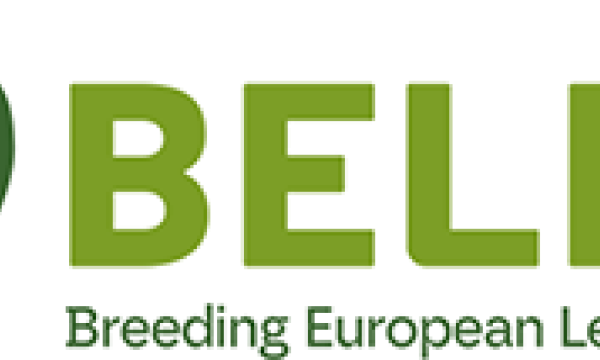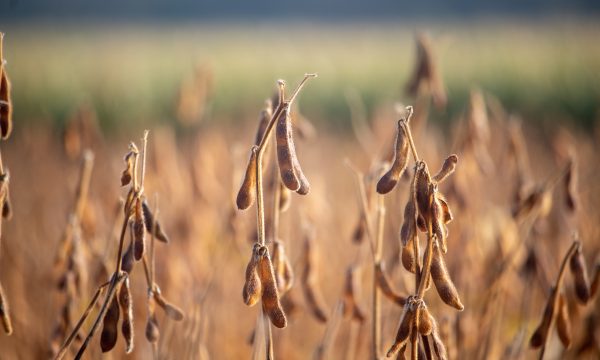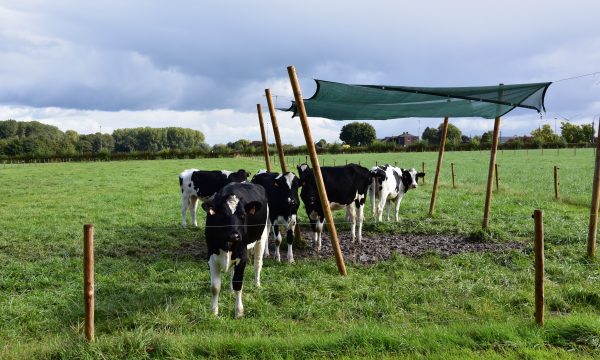Project report The Flemish co-existence regulations: an evaluation under practical conditions - Final report
Co-existence refers to the co-existence of different agricultural production types (conventional, organic and genetically modified crops) within current farming practices. This ensures freedom of choice for the farmer and with the additional objective that one production type will not cause harm to the other production types.
Crops, and thus also genetically modified crops, can outcross to crops of the same species through pollen dispersal. In addition, dispersal can also occur through storage and mixing can occur during sowing or planting, harvesting and transportation. To limit possible crop mixing and enable coexistence, coexistence measures should be developed. The causes and probabilities of admixture vary from crop to crop and therefore measures should be crop-specific.
The European legislative framework concerning genetically modified organisms (GMOs) consists, among others, of Directives 2001/18/EC and 1829/2003 on the deliberate release of GMOs into the environment and their use in food and feed production, respectively. Under these Directives, European Member States must ensure that all necessary measures are taken to prevent adverse effects from the release or placing on the market of GMOs.
Specifically to implement this in the context of primary agricultural production, the European Commission issued a Recommendation (2003/556/EC) on July 23, 2003, on establishing guidelines for the development of national strategies and best practices to ensure coexistence of genetically modified crops with conventional and organic farming. Co-existence rules serve to ensure freedom of choice and avoid economic damage.
This is described by the European Commission as follows: "Co-existence is about the practical possibility for farmers to choose between conventional, organic and GM crops, subject to legal labeling obligations and/or purity standards. Accidental presence of GMOs above the tolerance threshold set by Community regulations requires a crop, which was intended to be a non-GMO crop, to be labeled as containing GMOs. This may result in loss of income due to a lower price for the crop or difficulties in commercializing it. In addition, farmers may have to incur additional costs for monitoring systems and for measures to minimize the mixing of GM and non-GM crops. Co-existence thus involves the potential economic impact of GM and non-GM crop admixture, the determination of workable management measures to minimize admixture, and the costs of such measures."
Co-existence, in this approach, thus specifically concerns the economic risks or impacts that may arise from the admixture of a GM crop with a non-GM crop.
In Belgium, these regulations are developed at the regional level. With the Decree of April 3, 2009, organizing the coexistence of genetically modified crops with conventional crops and organic crops (Official Gazette of May 4, 2009, C-2009/35368), the legal basis is created to implement in the Flemish Region the mentioned European Directive and guidelines of the European Commission. In this decree, various tasks and provisions (conditions, criteria, formal requirements, etc.) are referred to the competence of the Flemish Government. The Decrees of the Flemish Government (BVRs) of October 15, 2010 that establish the concrete procedures and specific cultivation conditions crop by crop have been approved (Official Gazette of November 30, 2010, C - 2010/35913 and C - 2010/35914).
The use of GMOs in agriculture remains a sensitive issue for a number of diverse reasons. However, this technology may eventually offer opportunities for Flemish agriculture. Currently, two GMOs are authorized for cultivation in Europe: maize MON810 and the Amflora potato. Maize varieties containing the event Mon810 are resistant to the "European corn stem borer." Since this pest does not occur in Flanders, the use of this event in Flanders has no economic advantage. The Amflora potato produces pure amylopectin starch which is used in certain technical applications. A procedure for the approval of a corn event made herbicide resistant (NK603) is currently ongoing. In addition, companies and research institutions are also investing heavily in improving disease resistance in potato via GMO technology. The latter trait could be very interesting for Flemish arable farming.
However, application of these and other GMOs in practice is only possible if these GMOs are also available in varieties suitable for Flemish climatic conditions. The investments by the seed companies in their development are highly dependent on the legal security for the exploitation of the developed varieties.
Goals
It is therefore important that after elaborating the legal framework and concretizing the measures through Decrees of the Flemish Government, a practical test of this legal framework follows. This will allow an evaluation of the imposed procedures (e.g. testing the practical feasibility for farmer and contractor) and demonstrate that the objectives in terms of coexistence can be realized. The objective of this experiment does not include a detailed comparison of yields of GM maize compared to conventional maize varieties.
In function of this evaluation, which falls within the implementation of article 19 of the Decree of 3 April 2009, a simulation of a real agricultural practice was carried out on the ILVO premises. On a site located in the municipality of Wetteren, a plot of approximately 12 ha was divided into sub-plots, one of which was sown with a maize variety carrying the authorized event MON810 and the other with a non-GMO variety with the same genetic background. This cultivation was used to evaluate the regulatory framework as well as to inform all stakeholders involved, especially farmers and contractors.


